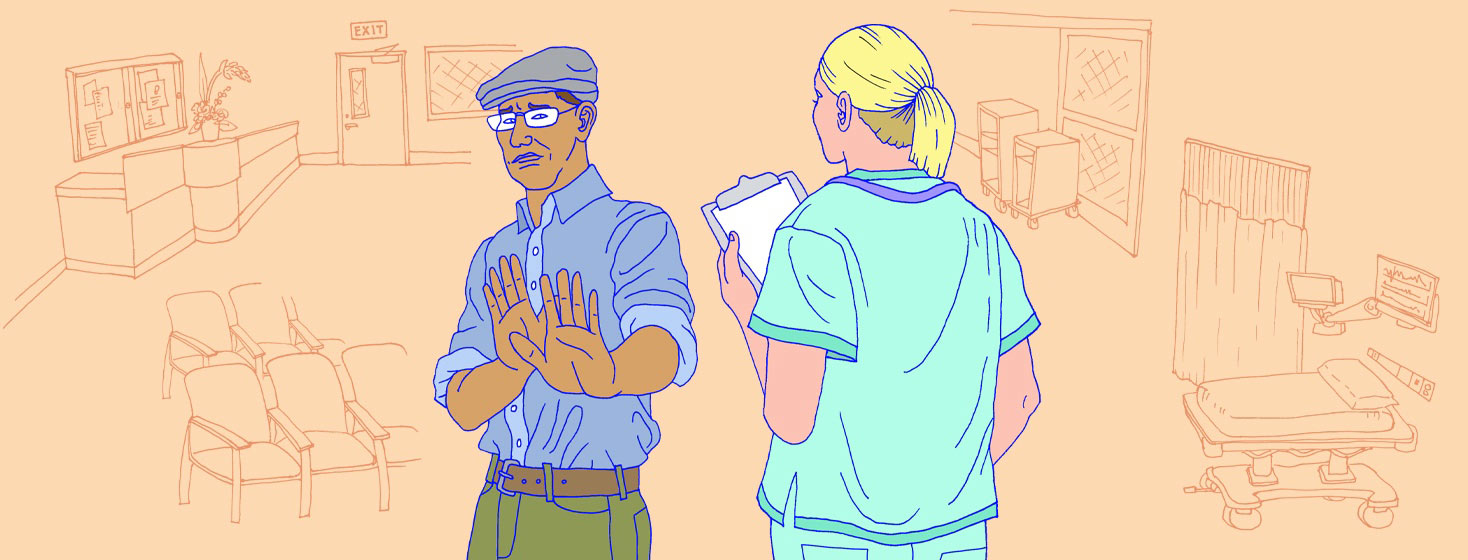Men Tend to Avoid the Doctor – and Why it Can be Deadly
Growing up, I learned that to stay safe on the playground at school, you needed to be tough. Or at least pretend to be tough. I was reminded of this lesson almost daily, watching kids teased and beaten up for showing any signs of physical or emotional weakness.
I’ll never forget when one of my classmates told us his mother died. A lot of us felt sorry for him and expressed our condolences. However, a few other kids immediately started calling him names and laughing about how he missed his mom. It was a defining moment that introduced me to the harsh realities of life.
Asking for help is thought to be weak
And the lessons didn’t stop on the playground. I would often hear phrases on television, and the radio, from family, friends, and teachers such as, “grow up,” “don’t be a baby,” and “big boys don’t cry.” Expressions like these were common and reinforced the message that men need to be tough. And this included being able to handle problems on your own without the need to seek help. Since men are tough, asking for help is thought to be weak.
These were just some of the lessons many men grew up with that taught us how to be a man. And if you didn’t live up to these lessons, you weren’t considered a man and would suffer the consequences of being shunned or bullied. Therefore, many men embrace a tough guy persona to avoid conflict and not appear to be anything less than a man.
But in reality, these messages encouraged boys to suppress their emotions, hide their problems, and not seek help for any reason. As a result, I think many men ignore or hide their health issues and avoid the doctor, hoping things will get better over time.
Playing a tough guy worked against me
In the case of my prostate cancer diagnosis, playing a tough guy worked against me. Since I’m not a tough guy, growing up under these conditions quickly taught me to pretend to be tough. And regarding my health, I often avoided the doctor, ignored my pain, and suppressed my feelings. I’m fortunate my wife is very loving and supportive. She helped me realize that asking for help is a sign of strength.
At first, I didn’t believe her and found it incredibly difficult to accept. But I have since learned it takes much more courage to be vulnerable. After all, hiding or suppressing your feelings or pain is akin to not having the strength to be your true self.
If it weren’t for my wife, I’d still be pretending to be the tough guy. And I wouldn’t have seen a doctor until after my cancer had spread. Unfortunately, prostate cancer typically has no symptoms in the early stages. And by the time signs develop, it can already have spread outside the prostate.
I had no early warning signs
Before my diagnosis, I was healthy and fit with no symptoms or family history. However, my wife insisted I have annual head-to-toe checkups. She said that we take our car in for regular maintenance, and our health is something we shouldn’t take for granted. And if there are health concerns or issues, it’s far better to find them as soon as possible before they escalate into something much worse.
As for me, cancer was already in the final stage before breaching the prostate and spreading. On top of that, the tumor was massive, almost as large as two and a half golf balls! And since I had no symptoms and avoided the doctor, my diagnosis would have been terminal had I waited. Unfortunately, I know many men diagnosed with Stage 4 prostate cancer that had no early warning signs. And they all wish they had seen a doctor before their terminal diagnosis.
Seeing a doctor is important
I understand discussing health issues that may threaten masculinity can be embarrassing. But I can’t stress enough that avoiding the doctor can be deadly.
One of my good childhood friends was recently diagnosed with Stage 4 prostate cancer, and his prognosis isn’t good. In his case, he admitted that he hid his symptoms for years, hoping things would improve. And his message is clear: please don’t hide your symptoms. And even if you feel healthy, please see a doctor for annual head-to-toe checkups.

Join the conversation